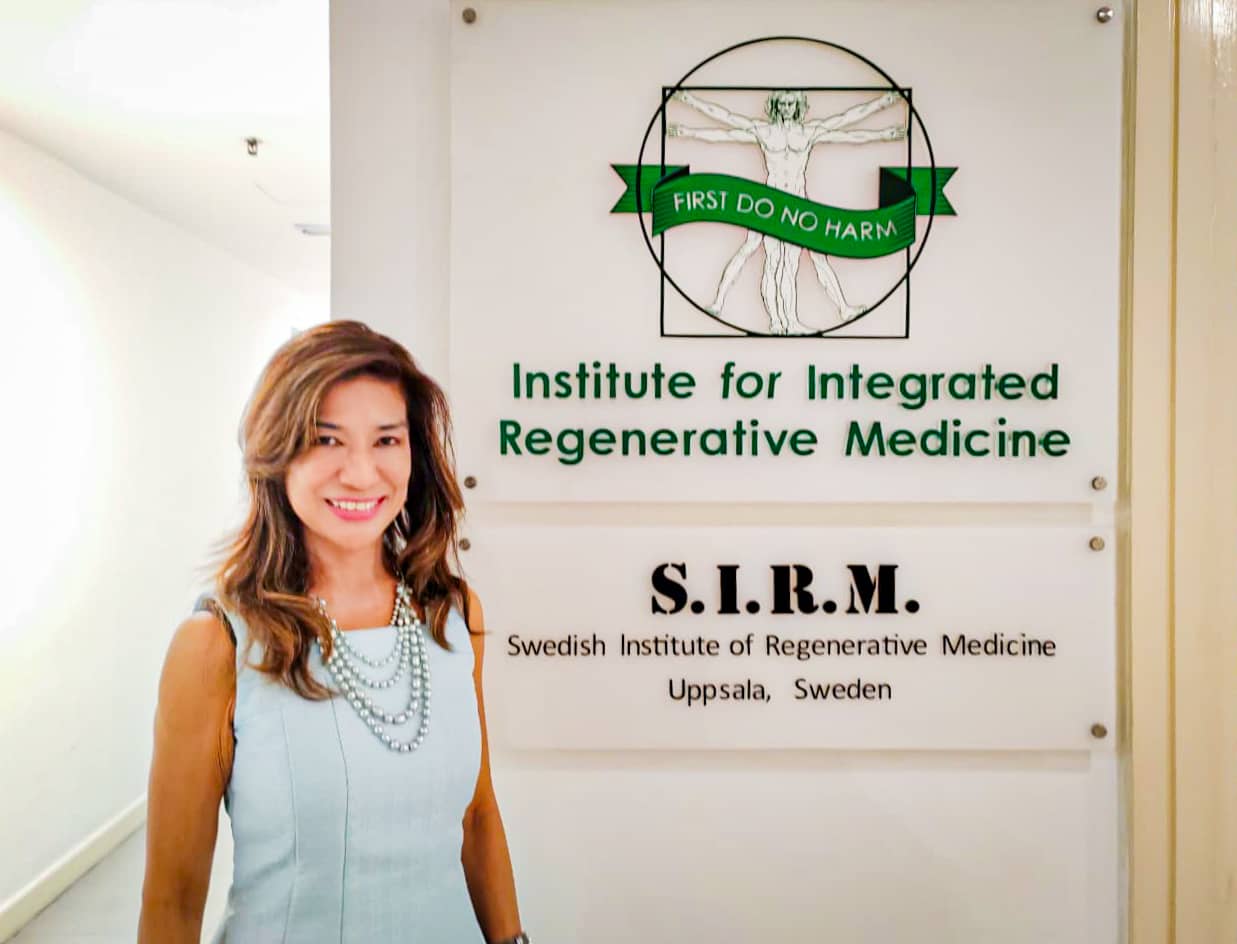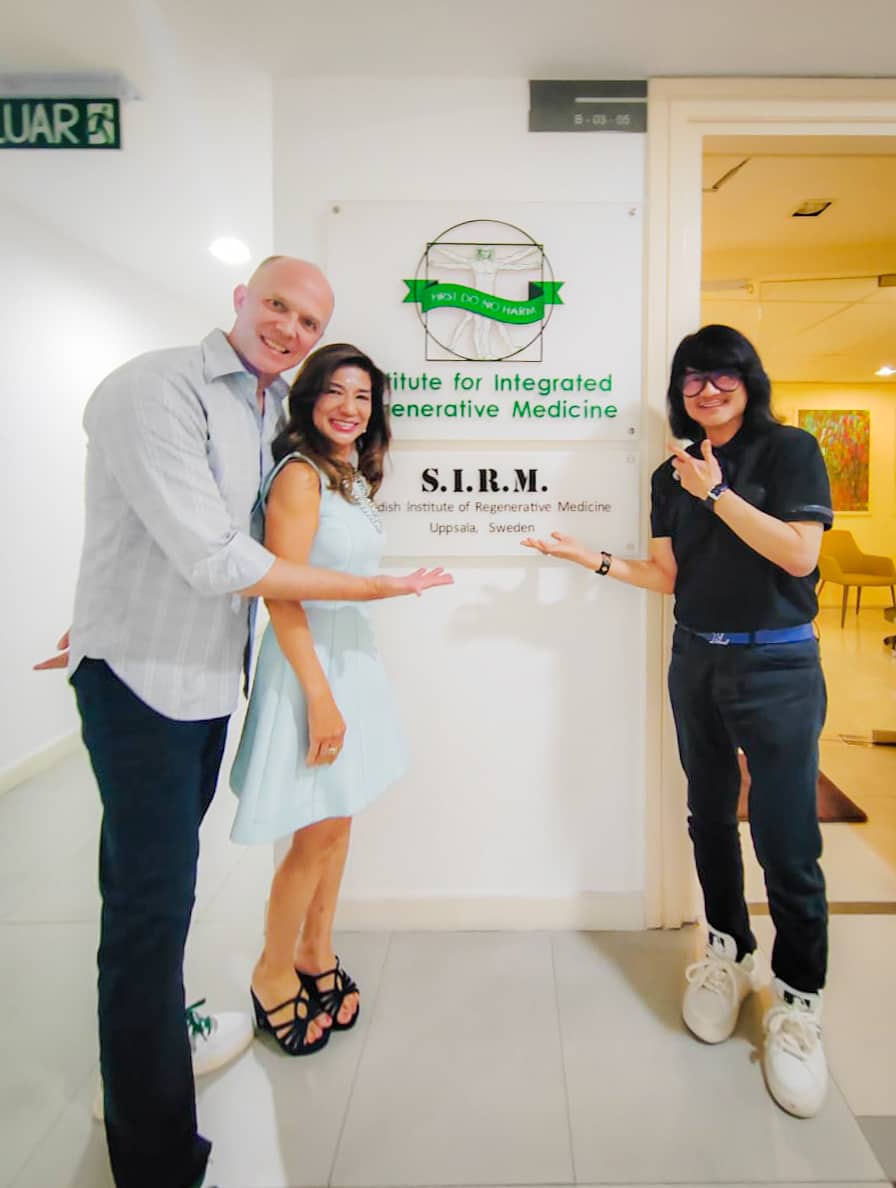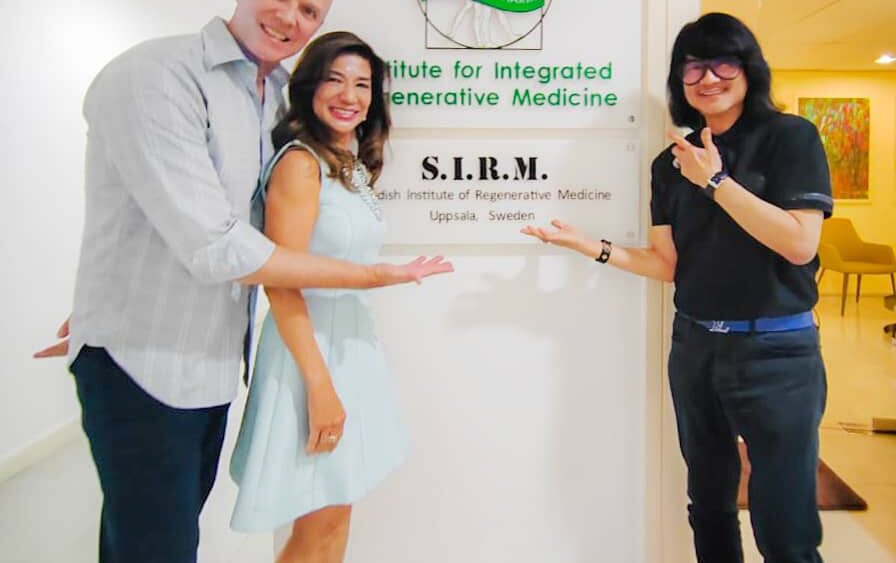In the ever-evolving landscape of contemporary medicine, the urgency for groundbreaking solutions to address health risks is paramount. While traditional medications can effectively manage many conditions, they often come with a myriad of side effects that complicate treatment and deter patient compliance. But what if there was a means to alleviate these risks? This is where the intriguing world of stem cells comes into play—an innovative frontier in medical research that promises to redefine our approach to health care.
This vision was at the forefront of a conversation between two leading experts: Prof Dr Mike Chan, a world-renowned scientist and pioneer in stem cell therapy, and Dr. Janethy Balakrishnan, President and Founder of the Association of Integrative Medicine Malaysia (AIMM). Their discussion, held at AIMM’s headquarters in Mont Kiara, Kuala Lumpur on September 29, 2024, revolved around the vast potential of stem cell therapy in transforming health care and its integration into holistic medical practices.
The Power of Stem Cells
Stem cells, often described as the body’s “building blocks,” have the remarkable ability to differentiate into various cell types, enabling them to regenerate damaged tissues and organs. Prof. Dr. Mike Chan, founder and chairman of the European Wellness Biomedical Group (EWBG) and a significant figure in cellular therapy since the 1980s, highlighted the profound biological basis behind stem cells:
In the fetal stage, all the 400 over types of stem cells, cells of all our 78 organs of all mammals, including man sitting on top of the animal kingdom, are alike,
Prof. Chan explained. He emphasized how this early development phase offers clues to how stem cells can be harnessed to treat diseases across the lifespan.
Prof. Chan further elaborated on the precision required for stem cell therapy:
We offer over 100 plus specialized therapies, including pioneering targeted organ & brain-specific precursor stem cell therapies, advanced Swiss German biological diagnostic services, and personalized wellness programs. Regeneration can only take place in targeted specific organs with targeted precursor stem cells, as all the 400 over different stem cells and cells have different fingerprints because all have different proteins, amino acid sequences, and molecules. No stem cells nor cells are alike!
This insight underscores the intricate complexity and precision involved in stem cell research, a field that Prof. Chan has been pioneering for decades across Europe and Asia.
A key benefit of stem cell therapy is its ability to minimize side effects commonly associated with traditional pharmaceuticals. Conventional drugs often target specific ailments but can inadvertently impact other bodily systems, resulting in unwanted complications. Prof. Chan explained that stem cells could address the root cause of problems, significantly reducing the reliance on multiple medications and their associated side effects.
With stem cells, we are moving towards treatments that work with the body, not against it, aiming for holistic recovery rather than symptomatic relief,
he stated.
A New Era of Personalized and Integrative Medicine
As we advance towards a more individualized approach to medicine, stem cell therapy emerges as a compelling option. Prof. Chan’s contributions have been instrumental in advancing this personalized approach to regenerative medicine. However, stem cells’ integration into a broader healthcare framework was also a key focus of the discussion.
Dr. Janethy Balakrishnan, drawing from her 35 years of clinical practice, emphasized the importance of combining both allopathic and non-allopathic medical practices. As the President of the Association of Integrative Medicine Malaysia (AIMM), Dr. Janethy’s vision is to bridge the gap between conventional and alternative treatments, advocating for a more holistic approach to healthcare in Malaysia.
By using a patient’s own stem cells, doctors can create customized treatments that are more likely to work with the body rather than against it. This is the next step in personalized medicine, but it also aligns with the principles of integrative medicine, where we treat the patient as a whole, not just the disease,
Dr. Janethy stated.
Her leadership of AIMM has focused on creating a platform that promotes collaboration among various medical practitioners to provide comprehensive healthcare solutions. Through initiatives and events organized by AIMM, Dr. Janethy continues to raise awareness about the benefits of integrative medicine, pushing for its recognition within Malaysia’s healthcare system.
For modern healthcare to advance, we must recognize that the answer doesn’t lie solely in conventional treatments. We need to combine the best of allopathic and non-allopathic practices, and stem cell therapy is a prime example of how we can incorporate innovative, scientific advancements into a holistic treatment plan,
Dr. Janethy added.
The Road Ahead
Although the prospects of stem cells are exhilarating, Prof. Chan acknowledged that the field is still in its early stages. Continuous research is vital to comprehensively understand how to best apply stem cells for various medical conditions. Despite this, the advancements achieved so far are laying the groundwork for a future where the risks associated with traditional medications are significantly diminished.
Lifespan depends on Healthspan, through CellSpan,
Prof. Chan stated, emphasizing the importance of regenerative medicine in extending both the quality and length of life. His extensive work in cellular therapy, including over 100 publications and 40 international patents, reflects his dedication to pushing the boundaries of what stem cells can achieve.
As we delve deeper into the potential of stem cell therapy, maintaining an ongoing dialogue is essential. Engaging with cutting-edge research, participating in clinical trials, and advocating for progress in this area are all critical steps in unlocking the potential of stem cells.
Conclusion
The rise of stem cell therapy symbolizes a beacon of hope in the continuously evolving sphere of medicine. By concentrating on mitigating health risks linked to traditional medications, stem cells have the capacity to transform lives positively. As Prof. Chan’s pioneering work continues to bridge the gap between research and clinical application, and as leaders like Dr. Janethy Balakrishnan advocate for its integration into holistic patient care, we stand at the threshold of a new era in health care.
Stem cells may very well be the key to unlocking a future of personalized, efficient, and side-effect-free treatments,
Prof. Chan concluded. Under the guidance of experts like Dr. Janethy and the collaborative efforts of AIMM, the integration of stem cell therapies into a broader healthcare framework seems poised to become a reality.
Join us in this exploration of a revolutionary field—stay informed, advocate for research, and consider the potential of stem cells to enhance your health and well-being. The future of medicine is promising, and stem cells may very well be at its core.
For more info, visit www.european.wellness.eu, www.mikechan.org and https://integrativemedicinemalaysia.org/





Comments are closed.